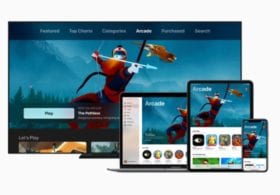 Donald Albright joined friend and music video director Payne Lindsey to launch content creation company Tenderfoot TV in 2016. Since then, Tenderfoot has released the viral true crime podcast “Up and Vanished” and the subsequent number one hit podcast “Atlanta Monster.” Albright tells Cynopsis how the podcast business is changing – and why TV dive in deeper.
Donald Albright joined friend and music video director Payne Lindsey to launch content creation company Tenderfoot TV in 2016. Since then, Tenderfoot has released the viral true crime podcast “Up and Vanished” and the subsequent number one hit podcast “Atlanta Monster.” Albright tells Cynopsis how the podcast business is changing – and why TV dive in deeper.
Cynopsis: How has the podcasting space changed over the past few years?
Donald Albright: I entered into the podcasting space just over 2 years ago, and I’ve seen dramatic shifts in just about every aspect of the industry, from the business side to the creative. The growth in listeners to over 100 million is fueling a huge spike in ad revenue which topped 300 million last year and is expected to double in the coming years. But content creation is where the biggest change is happening. In the past few years, the quality of the content has improved because the financial upside is now attracting the best creators to the space. And they aren’t just delivering talk show podcasts, they’re delivering highly produced long form storytelling. At the same time, podcast numbers have been legitimized by new IAB guidelines and Apple Podcast Analytics. It was kind of the wild west of numbers reporting before, but now, there is solid data available that gives advertisers more confidence in the podcasting space.
Cynopsis: What is podcasting’s impact on digital media?
Albright: From an advertising standpoint, the podcasting impact on digital media is huge because the ads have been proven to work. Podcast listeners are engaged with the content, which means they are paying attention, not just to the episode, but to the ads as well. Listeners aren’t using podcasts to fill the air as background music, and they aren’t scrolling past them on their phone. The fact that many ads are read by the host is another upside because the products are being personally endorsed by a trusted voice.
Cynopsis: How might TV networks take advantage of the format?
Albright: Podcasts are already being adapted into scripted and unscripted series, comedy and political specials, etc., but I think networks can take it a step further. Homecoming, Crimetown, Dirty John, and Lore are just a few of the big names grabbed up by the networks. We also have a show with the Oxygen network coming soon, ‘Up and Vanished’, based on season 1 of our podcast. From what we’ve seen so far, I think that in order to take advantage of the podcast audience at the height of its popularity, networks should consider getting into the game earlier. That way the network and the podcast creators can work in conjunction to transition audiences from podcast to TV while they have their attention. What’s important to remember here is that networks are getting an active listening audience when they make a deal with the podcast, and that built-in fan base can be a real value that you don’t always get when developing a new show. There is also a huge market for branded content that networks can advantage of, and can also, creatively, repurpose their television content for podcasts.
The Cynsiders column is a platform for industry leaders to reach out to colleagues, followers, and the public at large. In their own words and in targeted Q&As, columnists address breaking news, issues of the day, and the larger changes going on in the ever-evolving world of television, video and digital. Cynsiders columns live on Cynopsis’ main page and are promoted across all daily newsletters. We welcome readers’ comments, queries, and column ideas at [email protected].






